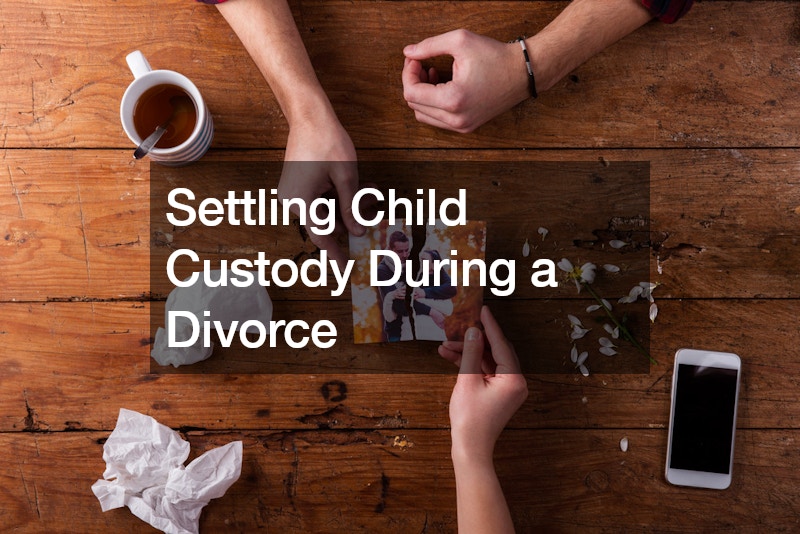Settling Child Custody During a Divorce


If you’re going through a divorce, you may feel overwhelmed. If you and your former spouse have children, it will result in even more challenges. To get custody of your children, you must find an experienced divorce attorney. A lawyer will be especially essential if your case results in contested custody.
You may wonder, “Can my work schedule affect custody?” According to Avvo, the court will not deny custody to a parent solely because they have a demanding schedule. It is typically best if parents can agree on a custody schedule, but if that isn’t possible, the judge will consider many factors. Custody is generally awarded based on who best prioritizes the children’s well-being.
Divorce lawyers are knowledgeable about the divorce laws of your state. They can help you prepare your divorce case so that you will be granted custody. In most states, grounds for full custody include abuse, criminal activity, mental illness, and substance abuse. If you can document the existence of any of those reasons to file for full custody, the judge is likely to grant full custody to you.

Unfortunately, divorce is becoming more and more common in the United States. The divorce rate for a first marriage is over 40 percent, while the divorce rate for a second marriage is over 60 percent. Even when the separation is amicable, the divorce process can easily become messy, especially if child support is an issue. If a couple has separated to live in separate states, a divorce lawyer might have to help settle interstate custody disputes during the divorce process. Establishing child custody can sometimes be the key to settling a divorce, and this article will look at how child custody can be mediated during a divorce.
During a divorce where children are involved, it is fairly common for custody to be awarded to one parent, especially if the couples are separating to live in separate states. The idea behind this is to give the children the most stable home environment possible. Interstate custody disputes might arise when one of parties involved in the divorce disputes the custody arrangement, either demanding sole custody for themselves or insisting on join custody.
If a divorce leads to a mediation for child custody, one or both sides might demand a custody evaluation, which determines which side is most fit to take custody of any children. A custody evaluation would involve social workers visiting the home of each party and determining its suitability for children. They would also look at each side’s income, home life, and work hours to see who is better adjusted for taking care of children. Interstate custody disputes could be settled with both parents receiving custody, which would lead to any children being traded between homes at different times of the year. More often though, any resolution would lead to one parent receiving custody, with the other parent receiving visitation rights.
In conclusion, child custody can be one of the messiest parts of a divorce. If one side insists on receiving sole custody, this can lead to a custody evaluation which could lead to one side or the other receiving sole custody (or occasionally resulting in joint custody). It is important that child custody be resolved as smoothly as possible, since a divorce can be very stressful for any children involved.